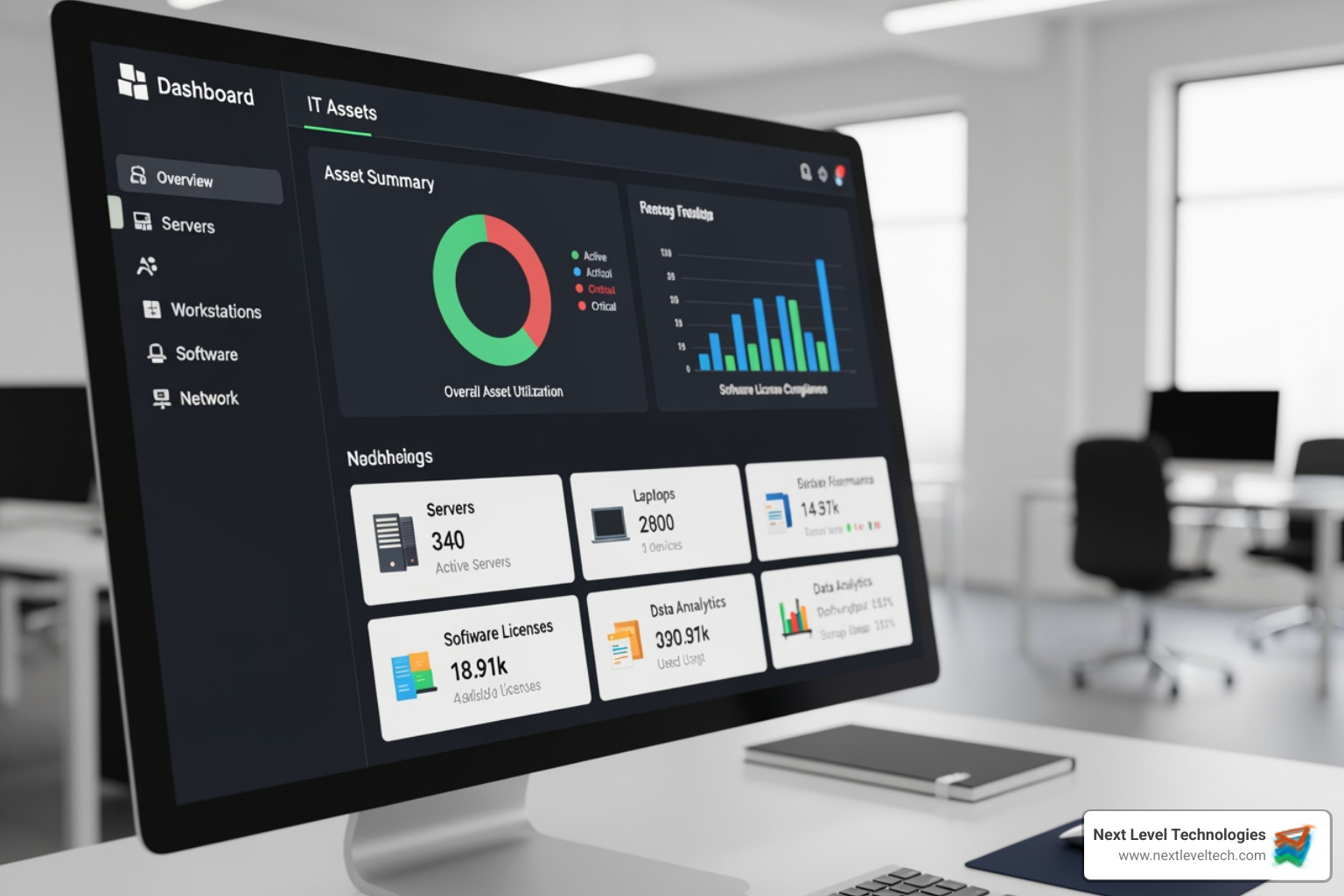6 Ways to Keep Your Business Data Safe
December 14, 2021

Launch your IT support for business startup! Get a complete blueprint for success, from market research to client acquisition and cybersecurity.
December 26, 2025

Master comprehensive IT support. Prevent downtime, fortify security, and empower growth with proactive managed services. Find your perfect partner.
December 25, 2025

Ditch spreadsheet chaos! Discover how an it asset management application centralizes control, saves costs, and boosts security. Get started today.
December 24, 2025
December 14, 2021
Keeping business data safe is of the utmost importance. If you don't protect company data, you could suffer a data breach that may cost you millions of dollars in fines, not to mention the lost customer trust a data breach causes.
The combined hit to your reputation and your profit could sink your company. It's a situation that you need to take very seriously.
So, with all that in mind, what are the best ways to keep your business data safe from security threats? How can you make sure that your data is not only safe from hackers but also natural disasters or other catastrophic incidents?
In this guide, we're going to take a look at what you as a business in Columbus, Ohio, can do to protect your data and keep it where it should be, rather than in the hands of hackers and criminals. Are you ready to learn more? Then let's get started!
Backups are very important but they're something that a lot of businesses don't take seriously enough. You should be backing up your data very regularly, at least once per month, but more often if you can afford to.
There are many different options when it comes to creating backups. You can create images of a computer, which stores all of the data on it, or you can back up specific folders.
Then there's the matter of where you should store these backups. While on-site backups have their advantages, there's still the risk of losing them if you suffer a network breach. Therefore, backing up your data in the cloud is a great option: if possible, doing both presents the best solution.
Backup management is an important factor to consider when choosing an IT support company. Make sure that it's something they offer before you hire them.
Backing up your data is only one piece of the puzzle. You should also encrypt your data. When you do this, your data will be scrambled unless you have the right password, which means that a hacker is less likely to be able to use your data for nefarious purposes.
Encrypting your computers and other devices entirely is a good step to take, and one that can help safeguard your important documents. Secure documents like these will require a password to open, but other than that, they will work like normal documents.
Encryption should not cause you any noticeable delays, so there's no reason not to do it. Even just encrypting certain files could save you a lot of bother later on.
On its face, this might not seem like it has much to do with data security. After all, what do OS or software updates do to protect your business? The answer is that they do a whole lot.
Microsoft and other companies usually release updates to patch security or performance issues. If you don't install these updates, you're leaving a gaping hole in your company's security.
Active update management is the solution to this problem. You can configure your updates so that they happen outside of working hours, such as in the early hours of the morning. This means that your data will be protected but the update process won't hamper your employees' productivity.
Last year saw an explosion in the number of people working from home, and it's not going anywhere. However, this does raise some security concerns. While you can manage the security of computers and other devices in the office, it's much harder to do this with remote employees.
The solution is to scan new devices for malware and vulnerabilities before you allow them to connect to your network. This applies to devices connecting over a VPN as well as devices that people bring into the office under a bring your own device (BYOD) policy.
It's impractical to offer work laptops or phones to every employee if you're a small business. This solution means that you don't have to but still lets you keep your network safe.
Once your employees have a device in use, it's worth training them in data security and basic cybersecurity, so that they can keep the device free of malware and other problems.
Sometimes you need to sacrifice convenience for the sake of security and this is particularly true when you're dealing with sensitive data. Saving passwords is incredibly convenient, it means that you don't need to re-enter your passwords again and again.
However, it also poses a massive security risk. Saving your passwords means that anyone with that device will be able to access confidential data. If your employee is robbed, that data is now effectively compromised.
You must stop saving passwords on any work machines, or any machines that are used for work at all.
Let's imagine a scenario where your digital security is fantastic: you're on top of your updates, you have a great antivirus program installed, and you've got network security nailed. Yet in this scenario, your building only has one lock on its front door. The problem is obvious: a criminal could easily break in and steal your data by breaking down that door and taking your machines.
This is why physical security is very important. You should implement IP access control to limit who can access your confidential data, locks that use keycards or biometric data, and also ensure that you have video surveillance in place.
All of these can help prevent physical data breaches.
We hope that you've enjoyed this look at how you can prevent your business data. While it's a lot of work, it's very important. If you'd like some help managing your data security in Columbus, Ohio, we're happy to aid you.
For more information about how we can help you, take a look around our website or contact us to book a consultation!
Launch your IT support for business startup! Get a complete blueprint for success, from market research to client acquisition and cybersecurity.
December 26, 2025
Master comprehensive IT support. Prevent downtime, fortify security, and empower growth with proactive managed services. Find your perfect partner.
December 25, 2025
Next Level Technologies was founded to provide a better alternative to traditional computer repair and ‘break/fix’ services. Headquartered in Columbus, Ohio since 2009, the company has been helping it’s clients transform their organizations through smart, efficient, and surprisingly cost-effective IT solutions.
